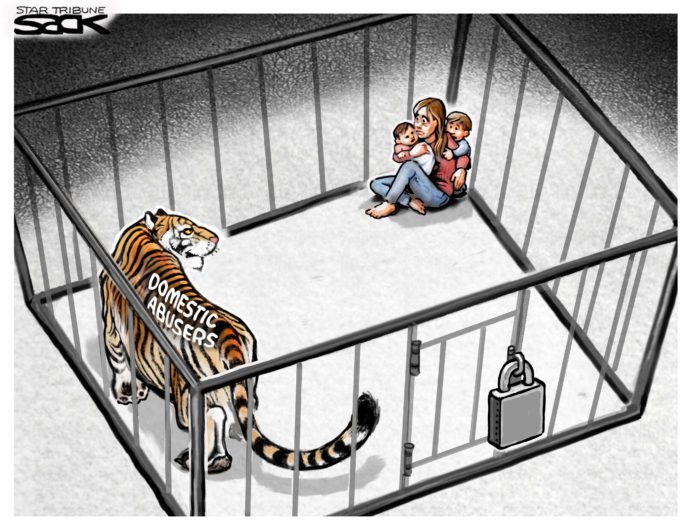A warning to readers: this column contains graphic details.
Oklahoma inmate John Grant was executed at 4:21 p.m. Thursday, Oct. 28. On Nov. 13, 1998, Grant, serving time for armed robbery, fatally stabbed 58-year-old Kitchen Supervisor Gay Carter with a sharpened screwdriver at the Dick Conner Correctional Center in Hominy.
This column not about the death penalty as policy. Nor is it about absolving Grant for the brutal murder that led to his execution. That is the end of Grant’s story; this is about the beginning.
Grant’s clemency petition asserted he never had a chance in life after being born into abject poverty to a single mother of nine, growing up in a crime- and poverty-ridden Oklahoma City housing project. Grant’s mother often beat her children, leaving both physical and mental scars.
As a pre-teen, Grant would be sent to multiple juvenile facilities for boys for stealing food and clothing for his siblings. Before Oklahoma established a foster care system, children like Grant were placed in rural jails for crimes. It was here, like other children, he experienced even more horrific abuse.
A 20/20 report from 1981 called “Throwaway Kids” won a Peabody Award for coverage of the sexual assault, torture, and death that occurred in Oklahoma’s juvenile justice system. A similar report titled “Oklahoma Shame” by Gannett News Service was published soon after. This recounted how “state employees were subjecting abandoned, orphaned, emotionally disturbed and delinquent children to a Dickensian kind of terror.”
High-level officials from the 45-year-old Oklahoma Department of Human Services, at that time overseen by Lloyd Rader, were aware of the abuse, but did not act. The report found that children were hogtied with handcuffs, belly chains, and leg irons for extended periods, sometimes suspended from the floor, shackled to toilets, drainpipes, sinks and beds, and kicked or beaten while so confined.
They were hospitalized with serious injuries, including broken bones, after being attacked by adult staff. Some were forced to commit hetero and homosexual acts with adult staff; recruited to join prostitution rings; provided with illegal drugs by supervisors; thrown into 5-by-8 solitary confinement cells for weeks at a time with no access to toilets; and supervised by convicted sex offenders hired by the state who were not properly vetted.
Following the murder, Grant’s attorneys argued he was a creation of the state who ended up in an adult prison at age 17 with no services to treat the trauma and mental illness issues caused by the abuse he endured.
The Oklahoma Institute for Child Advocacy was founded as a result of these two reports and the “Terry D” Lawsuit. This case led to changes in DHS: the retirement of Rader, creation of the foster care system, formation of Office of Juvenile Affairs to handle youth involved in the legal system, and establishment of the Oklahoma Commission on Children and Youth to investigate state agencies when allegations of wrongdoing arise.
The care of children by state agencies is far different today thanks to training, oversight, and accountability. That being said, we advocates cannot shirk our responsibilities to ensure this past never repeats. Even a slight backslide results in a generation of trauma.
Did the State of Oklahoma, among others, fail John Grant as a child, along with the hundreds, if not thousands, of other children from that generation who were incarcerated? There is no doubt. Grant’s is a cautionary tale; if we cannot get counseling for those who suffer from childhood trauma – incarcerated or not – those victims could follow the same path Grant followed to the death chamber, or face homelessness or suicidal thoughts as is far too often the case.
While things are better, the bar was not set at a high mark. Prevention services at an early age will save lives and reduce long-term trauma, in turn reducing crime and overall costs. Thank you to those who fought that fight for changes in Oklahoma, and for those who continue that battle. Each point of intervention helps avoid the possibility of more tragedies like the life of John Grant, and both his and Gay Carter’s death.







